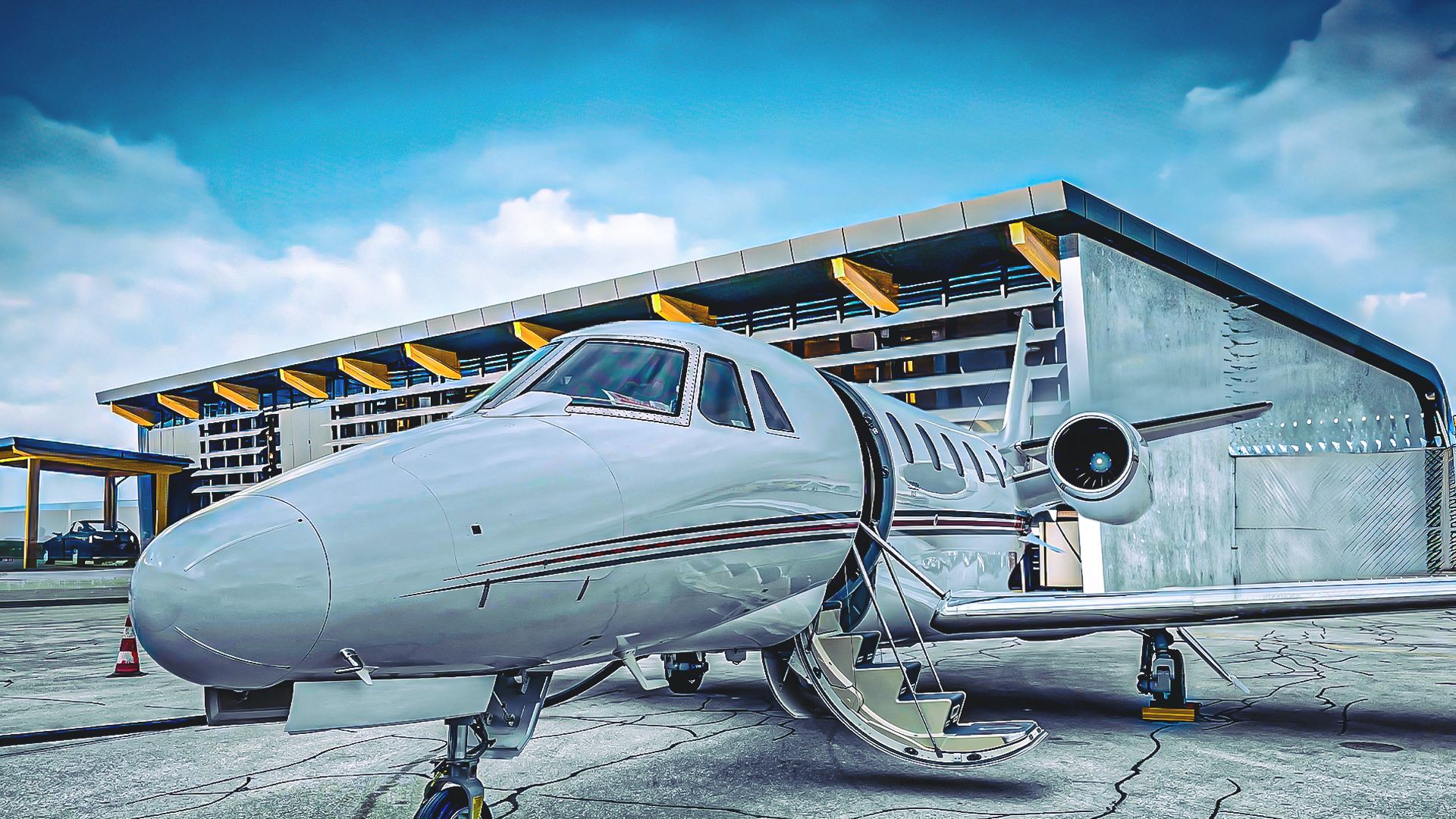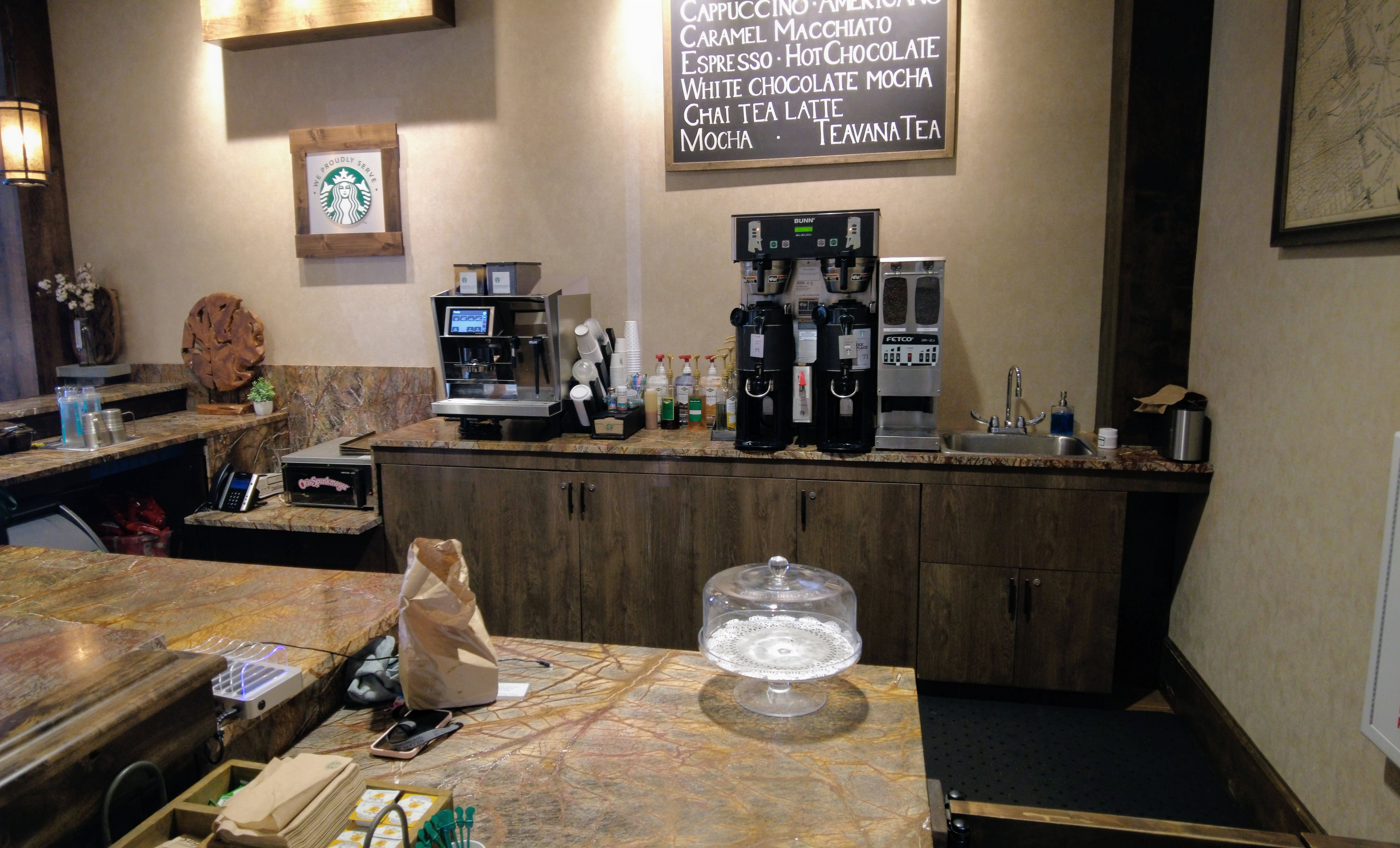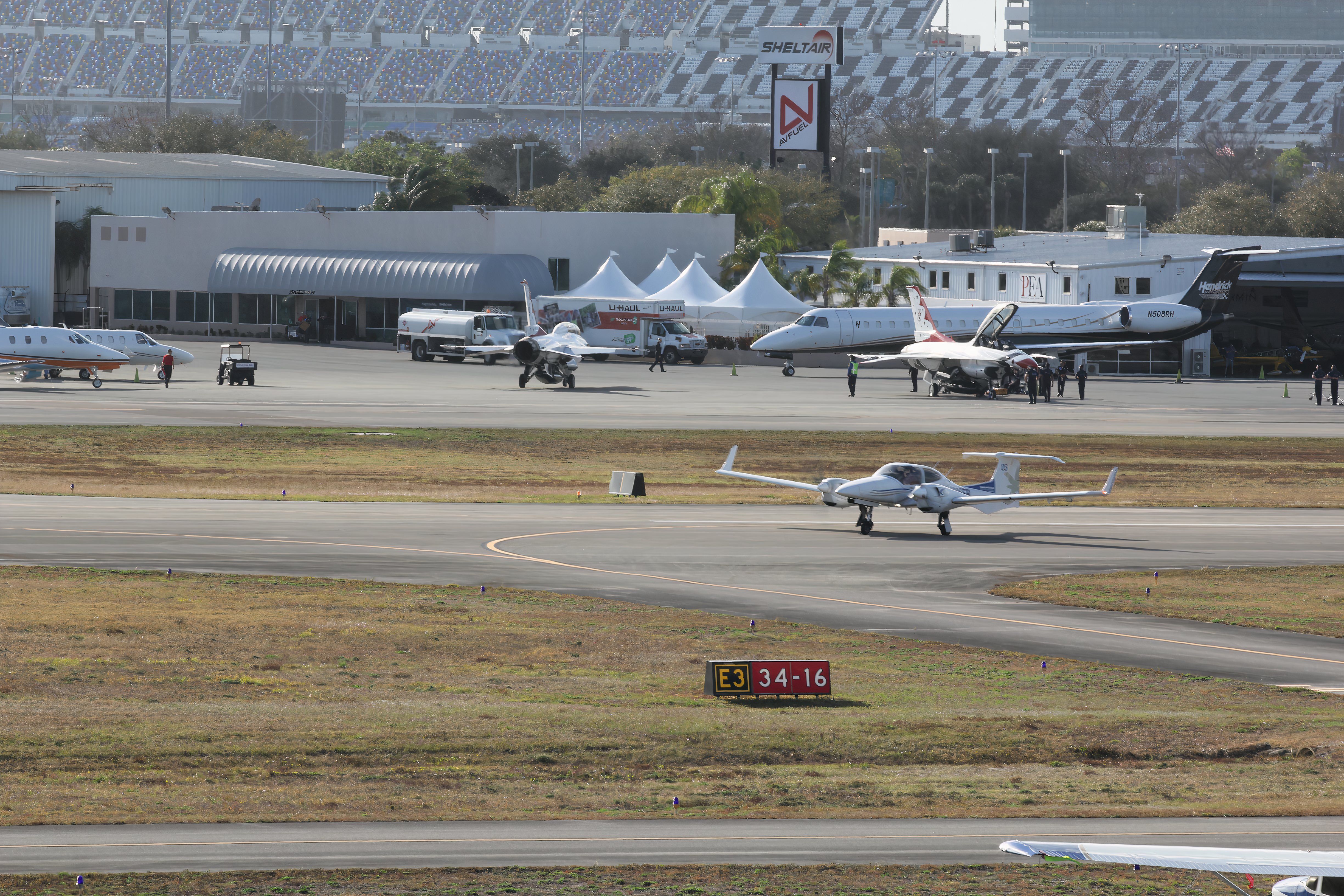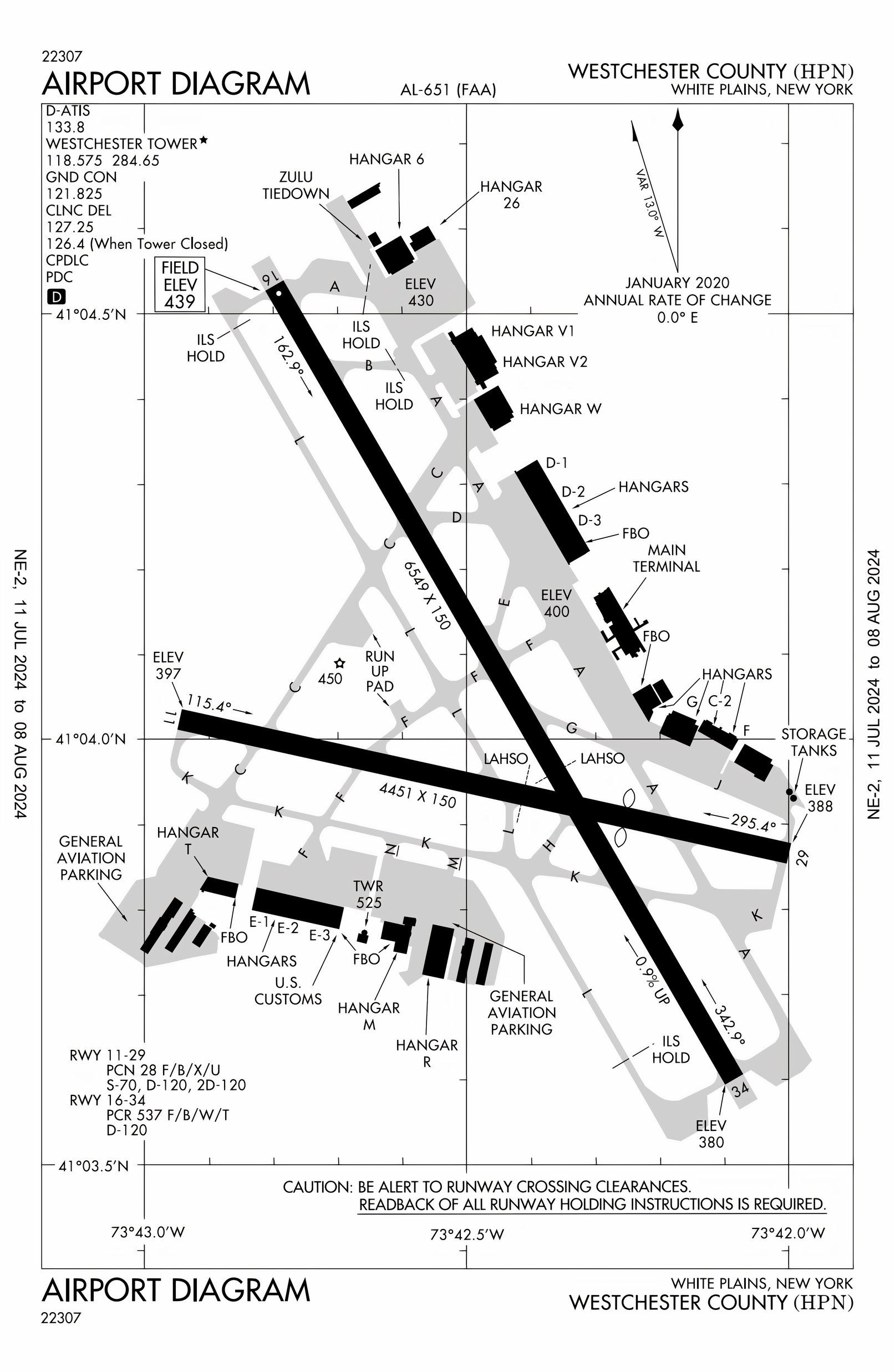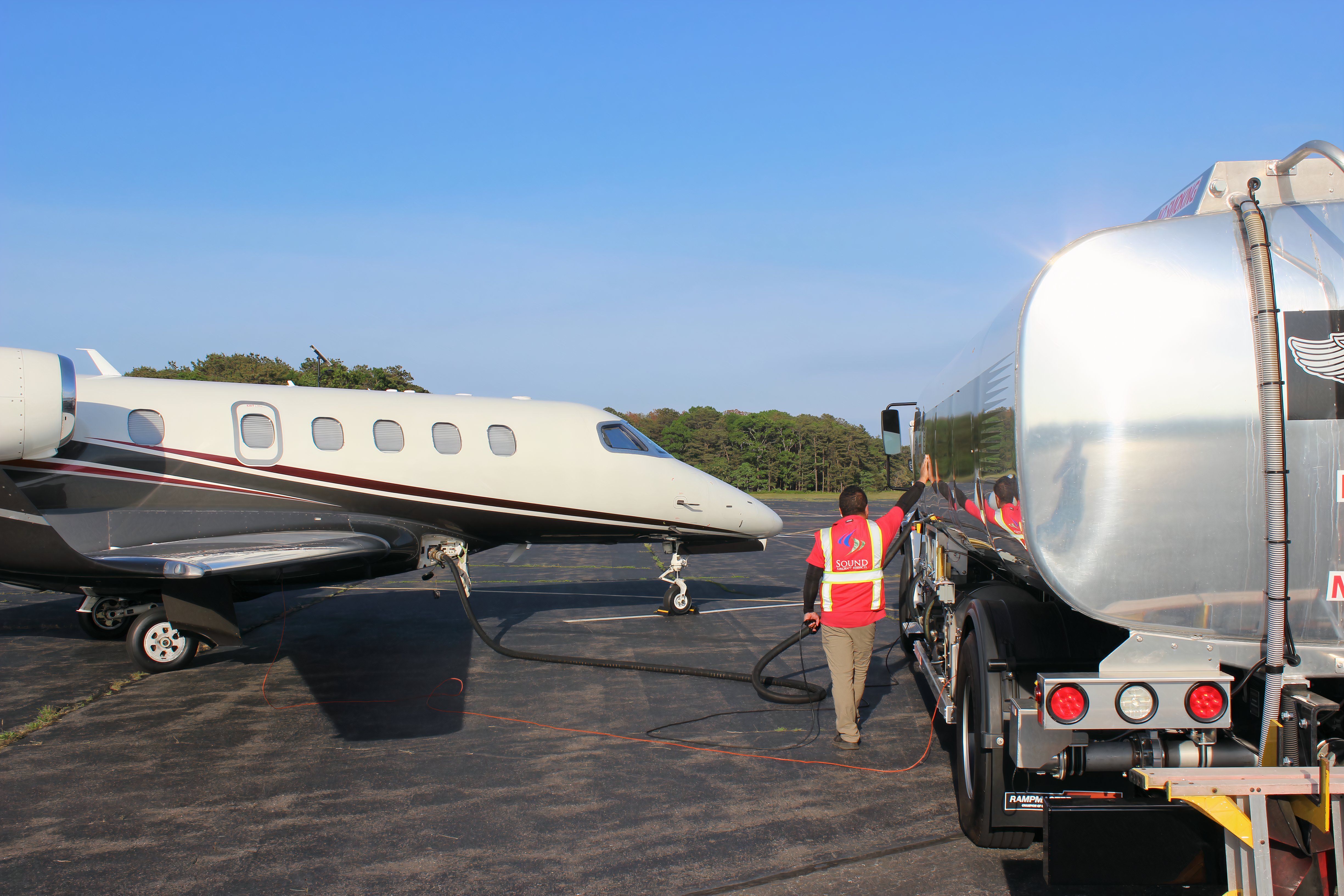Summary
- FBOs are like service stations for aircraft, offering various services beyond fueling.
- They differ from terminals in security, boarding, and amenities for private aviation.
- FBOs are adapting to sustainable practices like unleaded avgas, SAF, and electric aircraft charging.
It’s common knowledge that commercial airliners park at gates connected to terminals, but the parking arrangements for private aircraft may be less familiar. Let’s delve into the concept of a Fixed Base Operator (FBO) and its crucial role in private aviation.
How did the FBO come about?
Similar to circuses, pilots and mechanics frequently worked “on the road” without having a formal home base. Following the passing of the 1926 US Air Commerce Act, regulations regarding training and maintenance were introduced. This forced pilots and mechanics to set up permanent, non-transient businesses at airports to continue providing services.
The non-transient business practice is why the companies are called “Fixed Base Operators.” Initially founded in Albuquerque, New Mexico, as Cutter Flying Service Inc., Cutter Aviation FBO is the longest continuously-running FBO, dating back to 1928.
What is a Fixed Base Operator?
I am a part-time FBO employee; I tend to describe FBOs to my family and non-aviation friends as service stations for aircraft. While some gas stations provide the whole nine yards of service, some only offer gasoline. Massive oil companies own some gas stations ― think of Mobil, British Petroleum, Shell, Sunoco ― while others are merely mom-and-pop shops. The same applies to FBOs at airfields, but for aircraft-related services and may be owned by big companies like Signature Aviation, MillionAir, and Atlantic Aviation; others provide only fuel and might also be mom-and-pop. While they mainly service private aircraft, some FBOs at larger airports provide fuel for airliners. There are now over 3000 FBOs at airfields of all sizes across the country.
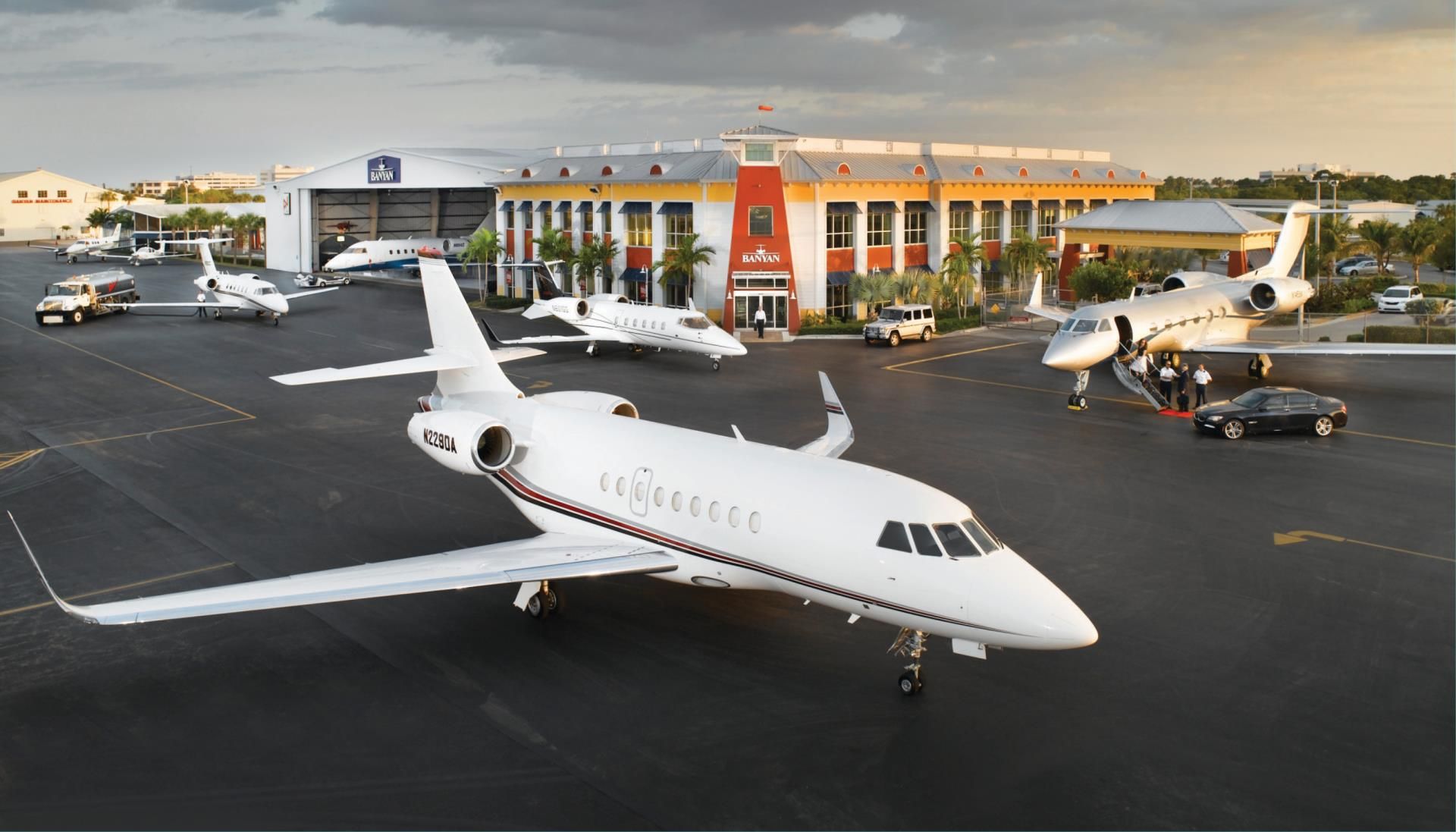
Related
What Is A Private Jet FBO?
FBOs are airport facilities for business aircraft.
What is the difference between an FBO and a terminal?
Even though the word “terminal” can refer to an FBO (Fixed Base Operator), the two have significant differences. One of the most striking contrasts is the level of security screening. Terminals, which serve commercial airlines, implement rigorous security measures before passengers board airliners. These measures include TSA agents, scanners, and thorough baggage checks. In contrast, FBOs, which cater to private aviation, do not have the same level of security requirements. This is because the risk of private aircraft hijacking is considered minimal. As a result, FBOs are not required to have TSA agents or scanners on-site.
Another key difference between terminals and FBOs is the boarding process. Terminals typically have designated gates through which passengers board and deboard between flights. Jet bridges often connect these gates to the terminal building, allowing passengers to walk directly from the terminal to the aircraft. In contrast, FBOs generally do not have gates. Instead, passengers can usually walk to their aircraft with little more than a known crew member or an FBO employee. This streamlined boarding process contributes to the overall flexibility and convenience of FBOs.
Terminals often offer a wide range of amenities and services, such as restaurants, shops, lounges, and sometimes even hotels. While amenities vary at FBOs, they often focus on aviation-related services like flight planning, catering, and ground transportation. Some high-end FBOs may offer luxury lounges and concierge services.
Services offered by FBOs
Beyond fueling, Fixed-Base Operators typically offer:
- Aircraft maintenance
- Hangar rentals
- Tie-down/parking services
- Catering
- Complimentary snacks
- Concierge services
- Flight planning assistance
- Crew lounges
- Ground transportation arrangements
Photo: Noah Cooperman | Simple Flying
Private Jet Card Comparisons warns, however, that:
“If you are used to international first and business class lounges on airlines like Cathay Pacific, Emirates or Lufthansa, you may be disappointed. Typically you will find bottled water, coffee, and perhaps a popcorn maker on a complimentary basis.
“Beyond that there are sometimes complimentary candies and packaged snacks. Think pretzels and biscuits. More often, sodas and packaged snacks are offered via vending machines. Some FBOs have restaurants or a coffee shop designed to serve the local airport community, but open to passengers as well.”
FBOs may have a desk for passengers to complete international customs procedures, staffed by customs officials who assist with documentation and inspections. Some upscale FBOs even offer golf simulators for pilots to practice teeing off.
Photo: Million Air FBO HPN
Thanks to their reduced restrictions and increased flexibility, FBOs are also ideal locations for flight schools and charter operations. Flight schools can utilize FBOs to provide students with hands-on training in a real-world aviation environment, and charter operations can use FBOs as their base of operations, allowing them to offer personalized and efficient services to their clients.
Where do I find the FBO?
It is worth mentioning that not every airfield has an FBO, and some airfields have multiple. If you’re flying to an airfield, your chart supplement will likely have the most accurate information. Digital services such as Foreflight, the Garmin Pilot App, and Skyvector also provide FBO information. Google Maps may give faulty details as it is updated the least frequently of the previous options.
It is worth mentioning, however, that not every airfield has an FBO, and some airfields have multiple. For instance, Daytona Beach International Airport in Florida has three: SheltAir by the passenger terminal, Yelvington Jet near the air traffic control tower, and ATP Jet Center between runways 25L and 25R.
Photo: Noah Cooperman | Simple Flying
Sometimes, an FBO company has a building on multiple sides of an airfield. At Westchester County Airport (HPN) in New York, Signature Aviation has two buildings: one on the east side and one on the west. Atlantic Aviation also has east and west buildings at HPN. Meanwhile, MillionAir FBO only has one building on the west side of HPN. Can you count all the FBOs on the diagram below? Let us know in the comments how many you find!
Diagram: Federal Aviation Administration
The sustainable future of FBOs
As general aviation adapts to more sustainable technologies, so must Fixed-Base Operators. When Textron announced that its currently existing single-engine piston aircraft can run on fuel without lead, FBOs started offering unleaded avgas.
Some FBOs are starting to offer Sustainable Aviation Fuel (SAF), a blend of organic feedstock and traditional jet fuel that is up to 80% more efficient than conventional jet fuel.
If SAF is not offered at a given airport, an aircraft operator can still offset any greenhouse gas emissions by paying a premium when purchasing fuel; this premium helps fund the production of SAF. This is called the “Book and Claim” method, offered by Signature Aviation FBO.
Photo: Noah Cooperman | Simple Flying
As technology advances, electric aircraft charging will eventually become standard at more FBOs nationwide. The FBOs at the three public-use heliports in Manhattan, New York, will be phasing out jet fuel for helicopters and ushering in chargers for electric vertical takeoff and landing (eVTOL) aircraft. The chargers will likely gain power from solar panels on the roofs of the FBOs, which will help the FBOs be more self-sustaining.

Related
Joby Aviation Completes First Electric Air Taxi Flight In New York
Joby Aviation not just completes an electric air taxi demonstration flight in New York City, but announces a new partnership with the city government.
While it may take the longest to adopt, FBOs will start to provide hydrogen fuel for fuel-cell aircraft.
In conclusion, Fixed Base Operators (FBOs) play a vital role in private aviation, providing a wide range of services to pilots, passengers, and aircraft owners. From fueling and maintenance to hangar rentals, catering, and flight planning assistance, FBOs are dedicated to ensuring a seamless and efficient aviation experience.
As the industry evolves, FBOs are embracing sustainable practices, offering unleaded avgas, Sustainable Aviation Fuel (SAF), and electric aircraft charging stations. FBOs are positioning themselves for a sustainable future while supporting private aviation’s growth and development by adapting to new technologies and meeting the growing demand for more eco-friendly aviation options.

